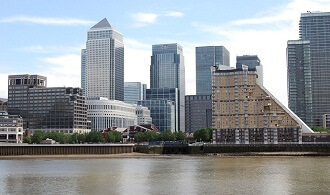‘Urban Explorers’ Spared Jail For Breaching Skyscraper Injunction
‘Urban Explorers’ Spared Jail For Breaching Skyscraper Injunction

Five teenage “urban explorers” have been spared jail for climbing a Canary Wharf skyscraper, even though they scaled to the top of the tower to mock a court injunction taken out against them.
Judge Jeremy Freedman ruled in the High Court against jailing the young men for being in contempt of court, calling his decision “an act of leniency to safeguard [their] futures.”
The Canary Wharf Group (CWG) obtained interim injunctions against the five named “urban explorers” as well as against any other trespassing “persons unknown” in February, rendering any future acts of trespass on CWG’s 100 acre estate in contempt of court.
Despite this, the “urban explorers” went on to climb the 58 storey Newfoundland building on the Canary Wharf estate in September, broadcasting the feat on social media with the caption: “What court injunction?”
Lawyers for CWG highlighted that the security of the estate’s buildings was a matter of national concern, and noted that “multiple banning orders” had been “repeatedly ignored” by climbers.
One of the teenagers, who breached a specific undertaking not to trespass, was ordered to pay a £250 fine, whilst the other four received no penalty.
More judges awarding injunctions against trespass
The case underlines the growing trend for judges to award injunctions rather than orders of possession in cases where proprietors are seeking to guard against acts of trespass.
Possession orders can be enforced to evict people who are unlawfully occupying land, whilst granting an injunction means that any future trespassers who breach the injunction by engaging in acts of trespass on the land can be found in contempt of court.
Despite being a discretional remedy which are sometimes difficult to obtain, injunctions are often essential for proprietors who are trespassing intermittently, as without someone in unlawful occupation, an order for possession cannot be imposed.
Commercial developers are therefore looking to use injunctions to protect their estates against trespass by “urban explorers” intent on scaling high-profile buildings. Breaching an injunction means that a trespasser can be found in contempt of court and therefore potentially face serious penalties such as a prison sentence or seizure of property.
The potential for these penalties makes injunctions an attractive and potentially effective option, as even if it may ultimately be difficult to enforce an injunction against trespassers, the presence of the injunction can act as a powerful deterrent.
Judges in recent cases have explicitly stated that this deterrent function can be enough to persuade them that granting an injunction is proportionate and reasonable; the injunction need not be easy to enforce.
Judge warns that further breach will result in jail
In the Canary Wharf Group’s case, the injunctions allowed developers to heighten the legal protections covering a large area of property, where members of the public are welcome to pass through, but specific acts of trespass present a threat.
The property group successfully argued in February that without an injunction, future trespasses were likely to occur.
Once granted the injunction, CWG were then able to place warnings around the Canary Wharf estate warning members of the public that trespass could result in a jail sentence. Although in this case the deterrent function of the injunctions did not work, it appears that CWG’s enforcement of the injunctions through the courts may be more effective. All five named defendants promised that they would not breach an injunction again after being warned that any further offences would result in a jail sentence.
When faced with the threat of trespassers, property owners are advised to first take measures to secure their land physically – whether with barriers, guards or surveillance – to avoid the need to go to court for an injunction or possession order.
Contact our experienced commercial property solicitors today
How to Choose the Right Commercial Property from IBB Solicitors
Whether you are acquiring, disposing of, developing, managing or funding commercial property, we can help. Call us now for expert, impartial and professional advice on 03456 381381, or email us at CRE@ibblaw.co.uk

